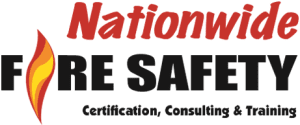Fire Prevention in the home
Get a fire alarm, test it at least once a week.
Fire Safety In Cork
At night put out candles and naked flames.
Do not overload electrical sockets, electrical equipment.
Spark guards protecting any open/naked flames.
Clean chimneys at least one a year
Follow manufactures guidelines with Electrical Equipment i.e. Blankets, hairdryers etc
Make sure cigarettes are extinguished properly avoid smoking in bed.
Consider ‘STOP’ and put Safety first.
[one_fourth]
S
Make Sure of your Smoke alarm
Make sure you have a working fire alarm on every floor of the Building.
[/one_fourth]
[one_fourth]
T
Test your smoke alarms regularly
Test your smoke alarm weekly, or designate the job to someone reliable. Don’t leave it to change. Batteries malfunction.
[/one_fourth]
[one_fourth]
O
Obvious dangers
Scan your home look for fire risks, overloaded sockets, candles and unattended appliances i.e. electric blankets.
[/one_fourth]
[one_fourth_last]
P
Plan your escape route
Know your surroundings keep access routes clear and have your keys at the ready. Know where you are going before hand.
[/one_fourth_last]
For proper fire safety check for fire dangers in your home and correct them
Prevention is the better than Cure
• Check your home room by room for fire dangers and correct them.
Remember: most fires in the home start in the living room, bedroom and kitchen at night while we are sleeping.
In the Kitchen
• Put a fire blanket and working fire extinguisher within easy reach in the kitchen and learn how to use them.
When cooking, always use the back rings first. Always turn in saucepan handles(child safety) and make sure they are not over other rings.
- Keep your cooker clean – grease is a fire risk, it spreads very fast and burns lino, carpet, wooden floors.
- Turn off the cooker when you are not using it.
- Never use your cooker for drying clothes.
- Check the cooker is switched off properly before you go to bed.
- Clean or replace filters in the extractor fan regularly.
- Chip pans are a fire risk – consider using an alternative cooking method.
Chip pans are a fire risk – preferably, don’t use them. If you use a chip pan, exercise extreme care.
• Never fill the chip pan more than one third full of oil or fat.
• Test the oil temperature by placing a small piece of bread in the pan. If
it crisps quickly,it is ready.
• If the oil smokes then it is too hot. Turn the heat off and let it cool down before starting again.
• Never leave the room when the chip pan is on.
• Never move a hot chip pan.
• If using an electric deep fat fryer, empty it and store away when plugged out and completely cooled down.
Electrical items –use carefully and store them properly when you are not using them.
- Don’t overload sockets. This is a major fire risk.
- Don’t run electric cables across cookers.
- Switch off and plug out electrical items when you are not using t hem.
- If any electrical cables or plugs are damaged, worn or frayed, do not use the electrical item and call a qualified electrician.Living room open fires
• Place a proper fitting spark guard and fireguard in front of an open fire.
• Don’t put anything on the fire guard.
• Don’t leave anything that can burn, like papers, magazines or clothes near afire.
• Don’t use an open fire to dry clothes. This is a major fire risk.
Keep your chimney clean
• Get your chimney cleaned regularly – follow this guide:
• Wood burning fires: four times a year when you’re using them. • Solid fuel fires: once a year if using smokeless fuel.
• Solid fuel fires: twice a year if using coal.
• Oil fires: once a year.
• Gas fires: once a year, if they are the kind that needs sweeping.
Portable heaters
• Use portable heaters with extreme care.
• Place heaters away from furniture, curtains and items that can burn.
• Don’t move heaters when they are on.
• Switch off heaters and plug them out before you leave the house or go to bed.
Candles at home
• Always place candles into proper holders.
• Do not put candles near items that may catch fire such as curtains, clothes or bedding.
• Never leave lit candles unattended. • Place candles away from draughts. • Don’t move a lit candle.
• Make sure you put out all candles properly before you leave the house or go to bed.
Carry out a last thing at night routine
• Before you go to bed at night:
- Check your ways out /exits are clear before you go to bed.
- If your front and back doors need keys to open, ensure the keys are kept in a readily accessible place, known to everyone in the home, close to the doors.
- Make sure fires are well down and place spark guards in front of open fires.
- Do not leave your television, radio or music system on standby. Only appliances designed for 24 hour use should be left plugged in at night-time e.g. fridges, freezers, etc.
- Plug out the mobile phone charger when your mobile phone is charged or when you go out or when you go to bed.
- Switch off and plug out your electric blanket before you go to sleep.
- Empty ashtrays properly and put out candles, before you go to bed.
